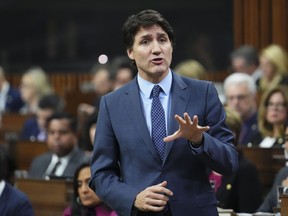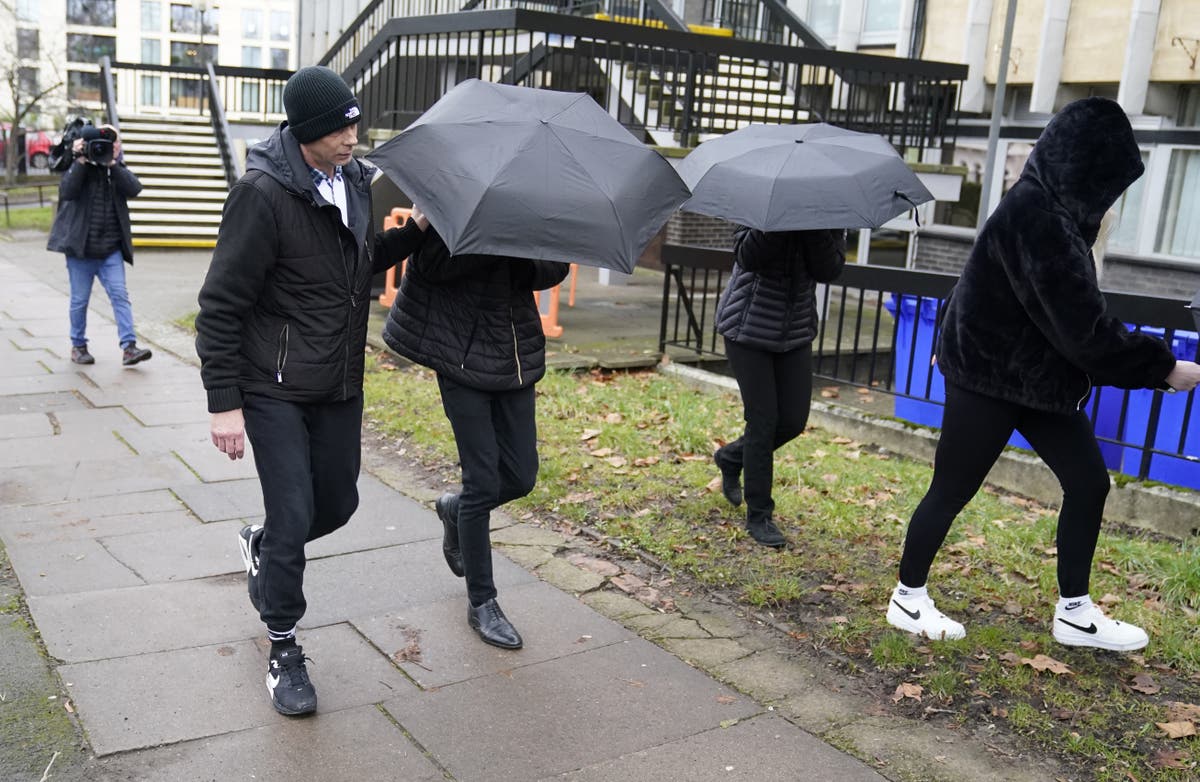
Article content
It’s absurd that Prime Minister Justin Trudeau and the Liberals believe that rebranding their “climate action incentive payments” as “Canada carbon rebates” is what’s needed to fix their carbon tax.
Advertisement 2
Article content
What Canadians deserve is the truth about Trudeau’s carbon tax, which they have never been given by the Liberals.
Article content
Consider:
The Liberals say if Conservative leader Pierre Poilievre axes the carbon tax, people will lose the rebates.
In reality, if there’s no carbon tax, there’s no need for rebates.
Recommended from Editorial
-

GOLDSTEIN: The clock is ticking down on Trudeau
-

GUNTER: Liberals shifting gears on green policies to win back votes
-

EDITORIAL: $200 billion spent on ‘climate action’ — for what?
The Liberals describe their carbon tax as a “price on pollution”.
It’s not a price on pollution. It’s a price on almost all goods and services Canadians pay for because almost all goods and services are produced using fossil fuel energy, including necessities such as heating homes in winter.
The Liberals claim 80% of households in the eight provinces paying the carbon tax (Quebec and B.C. have separate systems) receive more in rebates than they pay in carbon taxes.
In fact, parliamentary budget officer Yves Giroux, says when the negative impact of the carbon tax on the economy is factored in, 60% of households currently pay more in carbon taxes than they receive in rebates, which will rise to 80% in Nova Scotia in 2025, 80% in Ontario in 2026, 80% in Manitoba in 2029 and 80% in Alberta and P.E.I. in 2030.
Article content
Advertisement 3
Article content
Here are the PBO’s estimated average net costs (after rebates) for households in provinces under the federal carbon tax regime this year, with the carbon tax at $65 per tonne of emissions, followed by the estimated net cost in 2030, when it will be $170 per tonne.
Alberta $710, $2,773; Ontario: $478, $1,820; Saskatchewan $410, $1723; Manitoba $386, $1490; Nova Scotia $431, $1,513; P.E.I $465, $1,521; Newfoundland and Labrador $347, $1,316.
The PBO’s calculations didn’t include New Brunswick because it joined the federal carbon tax system after it did these estimates.
The federal carve-out on home heating oil will reduce the costs in Atlantic Canada to some extent, but all households will pay more when the Trudeau government hikes the carbon tax by 23% to $80 per tonne of emissions, from the current $65 per tonne, on April 1.
Advertisement 4
Article content
The Trudeau government argues the PBO failed to factor in the economic costs of not addressing climate change.
In fact, the PBO says, “Canada’s own emissions (at 1.5% of the global total) are not large enough to materially impact climate change” and “consequently, Canada’s primary means of limiting the economic costs of climate change are through participation in a globally coordinated emissions reduction regime.”
That means we’re relying on countries like China — the world’s largest emitter, which burns more coal than the rest of the world combined — to lower their emissions.
The idea that the increased costs faced by Canadians paying Trudeau’s carbon tax up to 2030 — we don’t know what happens after that — will result in savings because of less severe weather in Canada by 2030, when our emissions aren’t large enough to materially impact climate change, is absurd.
Advertisement 5
Article content
The Trudeau government says its carbon tax is revenue neutral with 90% of the money raised returned to households and 10% going to small businesses, Indigenous groups, farmers, schools, universities and municipalities.
But the carbon tax isn’t revenue neutral because the Trudeau government doesn’t rebate the GST households pay on top of the carbon tax.
The PBO estimates this “tax on a tax” will raise $486 million for the federal government this year, rising annually to more than $1 billion in 2030.
The Canadian Federation of Independent Business says the Trudeau government has not returned $2.5 billion in carbon tax revenues collected since 2019 to small businesses in Ontario, Manitoba, Saskatchewan and Alberta, despite promises to do so.
Advertisement 6
Article content
Indigenous leaders in Ontario have asked the federal court for a judicial review of the carbon tax, arguing it discriminates against First Nations by disproportionately impacting them, without appropriate financial relief.
Farmers complain that the financial relief the government has provided to defray the added costs they face because of the impact of the carbon tax on agriculture, is inadequate.
The Liberals say their carbon tax is the most effective way to lower industrial greenhouse gas emissions linked to climate change.
In reality, we don’t know how effective the carbon tax is because the Trudeau government doesn’t keep track of its impact on emissions. It guesstimates it will account for up to one-third of emission reduction in 2030.
According to the latest available federal government data, Canada’s emissions in 2021 went up by 1.8% to 670 million tonnes, compared to 2020.
The U.S., without a national carbon tax, has been more successful than Canada at reducing emissions.
Article content









